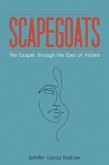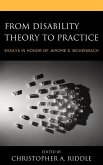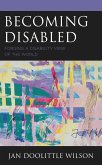In Matthew, Disability, and Stress: Examining Impaired Characters in the Context of Empire, Jillian D. Engelhardt examines four Matthean healing narratives, focusing on the impaired characters in the scenes. Her reading is informed by both empire studies and social stress theory, a method that explores how the stress inherent in social location can affect psychosomatic health. By examining the Roman imperial context in which common folk lived and worked, she argues that attention to social and somatic circumstances, which may have accompanied or caused the described disabilities/impairments, destabilizes readings of these stories that suggest the encounter with Jesus was straightforwardly good and the healing was permanent. Instead, Engelhardt proposes various new contexts for and offers more nuanced characterizations of the disabled/impaired people in each discussed scene, resulting in ambiguous interpretations that de-center Jesus and challenge able-bodied assumptions about embodiment, disability, and healing.
Bitte wählen Sie Ihr Anliegen aus.
Rechnungen
Retourenschein anfordern
Bestellstatus
Storno









